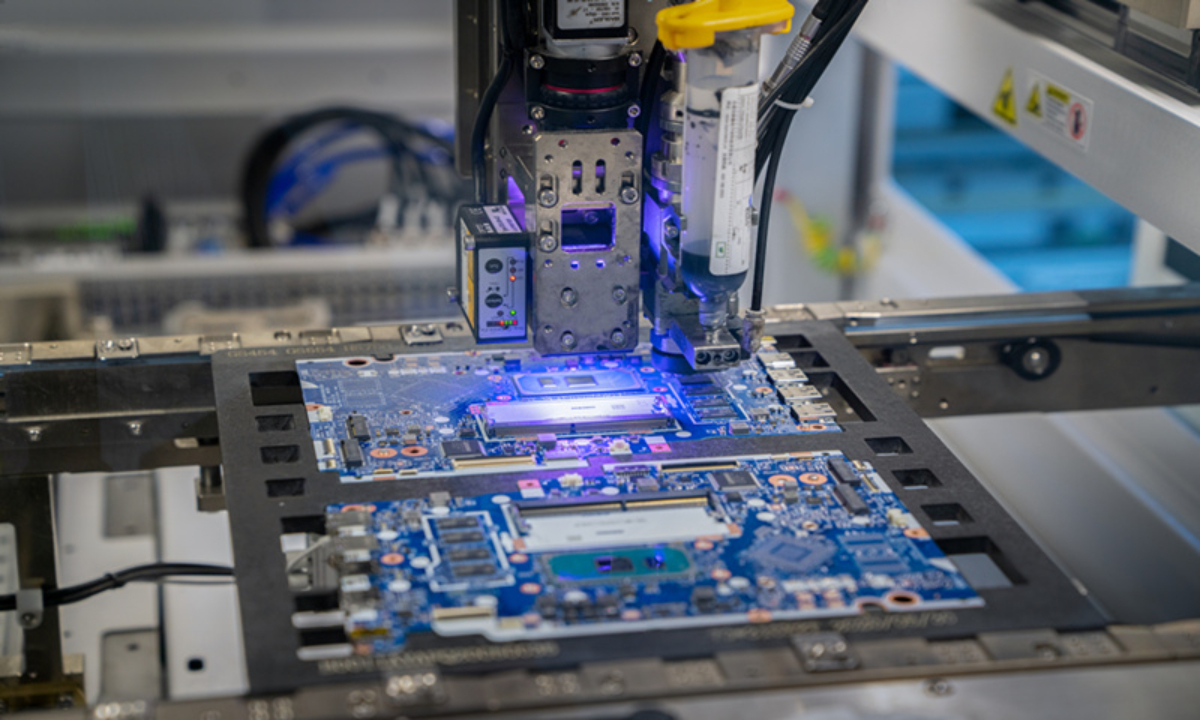
A chip manufacture machine Photo: VCG
The US Commerce Department said Friday it would change a licensing system that allows Samsung Electronics and SK Hynix to get US equipment for their chip plants in China, hoping to make it harder for the semiconductor giants to operate there. Chinese expert criticized the move on Saturday, saying it will ultimately backfire on US companies and tighten the global chip supply.
According to a notice published Friday, the Commerce Department said it was revoking waivers for Samsung and SK Hynix to use US technologies in their Chinese operations. The two semiconductor firms had previously been able to operate in China under regulations that allow them to import chipmaking equipment without applying for a new license each time, Bloomberg reported.
The latest move would revise what’s known as the Validated End User, or VEU, rules, restricting chip production in China and jeopardizing Beijing’s access to certain technologies, Bloomberg reported.
The waivers date back to 2023, when the Biden administration allowed South Korean chipmakers to acquire the equipment they need to sustain and expand their large operations in China. Washington had effectively granted an indefinite exemption from broader restrictions banning the shipment of advanced chipmaking gear to the country.
The move marks an escalation of its strategy to block China’s access to advanced semiconductor manufacturing technology. This move will not only make it harder for the two South Korean companies in procuring equipment for their operations in China, but also restrict their development, inevitably tightening global chip supplies, Ma Jihua, a veteran telecom industry observer, told the Global Times.
Washington’s restrictions on the operations of South Korean chipmakers in China reflect a mindset of technological hegemony, but the strategy may backfire by hindering innovation and development across the entire semiconductor industry, undermining the US’ own technological progress and competitiveness, said Ma.
SK Hynix said it would “maintain close communication with both Korean and the US governments and take necessary measures to minimize the impact on our business.” Samsung did not immediately respond to a request for comment, Bloomberg reported.
Overseas-owned plants in China play an outsized role in memory chip supply, accounting for 10 percent of global computer memory output and 15 percent of storage chips, according to research from Bernstein.
By restricting the capacity upgrades and technological progress of Samsung and SK Hynix in China, the US will likely spur the growth of China’s domestic semiconductor industry. To fill the gap, Chinese companies are expected to increase R&D investment and speed up innovation, Ma said.
In July, a spokesperson for China’s Ministry of Commerce said the US should abandon zero-sum thinking and remove its unreasonable economic and trade restrictions on China.
“Win-win cooperation is the right path for China and the US, while suppression and containment lead nowhere,” the spokesperson said. He added that China expects the US to work with China in the same direction, engage in equal consultations, and correct its erroneous practices to foster a favorable environment for mutually beneficial cooperation between enterprises of both countries, and jointly safeguard the stability of global semiconductor production and supply chains.
Source link

